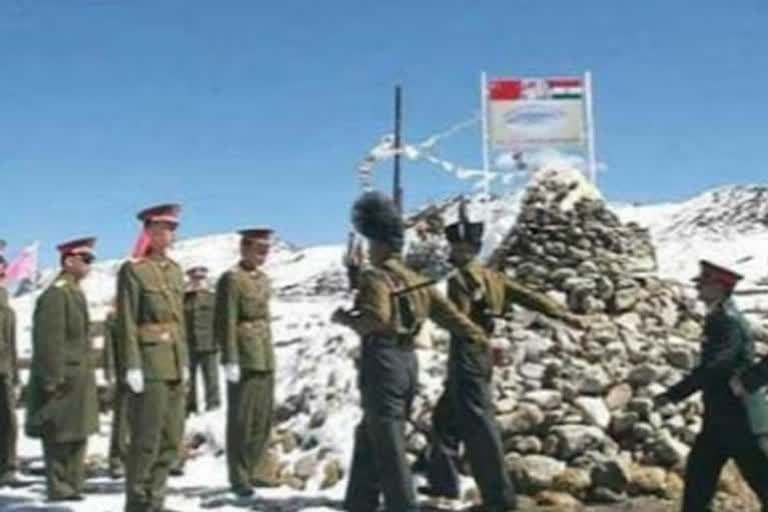New Delhi: Top commanders of the Indian Army will carry out an in-depth review of the tense standoff between Indian and Chinese troops in several areas of eastern Ladakh at a three-day conference beginning Wednesday.
The commanders will also deliberate on the overall situation in Jammu and Kashmir besides delving into issues having national security implications, they said.
However, the main focus will be on the situation in eastern Ladakh where Indian and Chinese troops are locked in an eyeball-to-eyeball face-off in Pangong Tso, Galwan Valley, Demchok and Daulat Beg Oldie, the sources said.
Both India and China have significantly increased their presence in all sensitive areas in the region, signalling that the confrontation may not see a resolution anytime soon. There have been efforts by both sides to resolve it through talks.
The situation in eastern Ladakh deteriorated after around 250 Chinese and Indian soldiers were engaged in a violent face-off on the evening of May 5 which spilled over to the next day before the two sides agreed to "disengage" following a meeting at the level of local commanders.
Over 100 Indian and Chinese soldiers were injured in the violence.
The incident in Pangong Tso was followed by a similar incident in north Sikkim on May 9.
"The apex level leadership of the Indian Army will brainstorm on the current emerging security and administrative challenges and chart the future course for Indian Army," Army Spokesperson Col Aman Anand said, without elaborating.
The commanders' conference was originally scheduled to be held from April 13-18, but it was postponed due to the coronavirus pandemic.
It will now be held in two phase. The first phase will be from May 27 to 29 and the second one in the last week of June, Col Anand said.
"India has handled the situation in a mature way. The commanders are expected to have detailed deliberations including on the strategy to confront China's aggressive behaviour," an official said on the condition of anonymity.
India last week said that it has always taken a very responsible approach towards border management but the Chinese military was hindering normal patrolling by its troops.
At a media briefing, External Affairs Ministry Spokesperson Anurag Srivastava also strongly refuted China's contention that the tension was triggered due to trespassing by Indian forces on the Chinese side.
India's response came two days after China accused the Indian Army of trespassing into its territory, claiming that it was an "attempt to unilaterally change the status" of the LAC in Sikkim and Ladakh.
On May 5, the Indian and Chinese army personnel clashed with iron rods, sticks, and even resorted to stone-pelting in the Pangong Tso lake area in which soldiers on both sides sustained injuries.
In a separate incident, nearly 150 Indian and Chinese military personnel were engaged in a face-off near Naku La Pass in the Sikkim sector on May 9. At least 10 soldiers from both sides sustained injuries.
The troops of India and China were engaged in a 73-day stand-off in Doklam tri-junction in 2017 which even triggered fears of a war between the two nuclear-armed neighbours.
The India-China border dispute covers the 3,488-km-long LAC. China claims Arunachal Pradesh as part of southern Tibet while India contests it.
Both sides have been asserting that pending the final resolution of the boundary issue, it is necessary to maintain peace and tranquility in the border areas.
China has been critical of India's reorganisation of Jammu and Kashmir, and has particularly criticised New Delhi for making Ladakh a union territory. China lays claim over several parts of Ladakh.
Prime Minister Narendra Modi and Chinese President Xi Jinping held their first informal summit in April 2018 in the Chinese city of Wuhan, months after the Doklam standoff.
In the summit, the two leaders decided to issue "strategic guidance" to their militaries to strengthen communications so that they can build trust and understanding.
Modi and Xi held their second informal summit in Mamallapuram near Chennai in October last year with a focus on further broadening bilateral ties.
PTI Report
Also Read: Amid border military faceoff, China media says ties with India at 'new stage'



